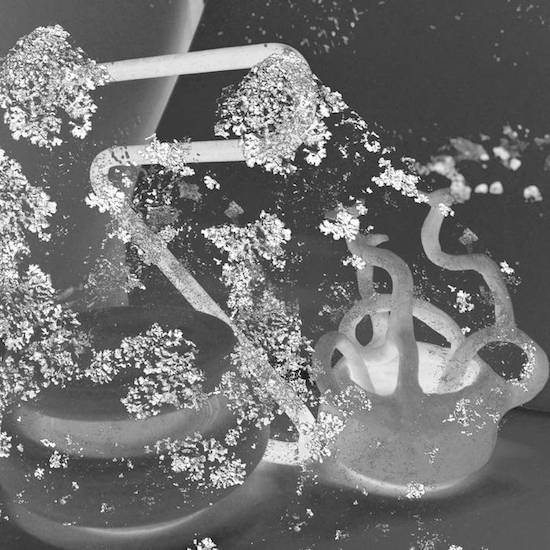At its best, minimalist music conjures a strangely therapeutic, inward-looking experience. Like meditation, a decent hike, or consciously leaving your phone at home, it can stop the sensory onslaught that we allow ourselves to be pulped by on the daily. In peeling away the excess stimuli of ‘busier’ sounds, minimalism makes it possible to embrace foundational space and the power of silence, or a simple pulse from those with more mindful sensibilities. Once it clicks, you can find it in the trance-inducing rhythms of a minimal techno beat, in the hypnotic drones and loops of ambient production, and in chants and invocations throughout spiritual, cultural and communal history. When done correctly then, with a sense of authenticity, purpose and genuine care, minimal composition has the potential to be as affecting as its emotionally forthright counterparts. If not more so.
It’s something that Glasgow-based, Finnish musician Maria Rossi has channelled ambitiously in her debut LP Hilja , released on Nightschool Records. Over the course of eight carefully constructed pieces, Rossi takes away every unnecessary layer, bringing the listener into some unknowable space where the sounds feel both familiar and strange, vivid in places and distorted in others; it is contextless and, as such, purely experiential.
The name Cucina Povera refers to a style of Italian cooking that makes use of whatever happens to be present in the kitchen. Rossi, using her voice, sprinklings of organic percussion, found sounds and careful synths, allows for only the most vital of sounds to make it into each track, and only when absolutely necessary. Take ‘Avainsana’, which opens out slowly with a sound like a wooden mechanism interacting with water. A low, swelling bass sets the mood for a tired, longing vocal which layers on top of itself gradually above the quiet beat. There’s nothing strictly out of the ordinary here, but the way Rossi allows each layer to breathe makes for a disorienting experience that is at once uneasy and irresistible.
The album’s title, Hilja, feels crucial then, translating from Finnish to mean ‘silent’. So sparing are the sounds on this record that the bed of silence they rest on feels as present as anything else. Like a quiet room where the sound of a pin dropping echoes like a bell, or an abstract work of ASMR, the utterly stripped back nature of this album makes every note and scratch important and lucid. It’s a collection to experience on headphones, ideally in the dark, probably alone. On ‘Demetra’, a sad, wavering synth pans about as Rossi creates a slight percussive loop by hissing between her teeth. The vocal tone of the album is set here too, with a single word drifting gently onto the track at languid intervals.
It is Rossi’s singing and use of vocal loops that make this album such a special experience. A collection of eerie hymns in Ultra-HD, her mantras are carried beautifully, their language drifting from present, to wordless, to a realm of Elizabeth Fraser-esque obscurity. On ‘Kuparirumpu’, she creates a backdrop of vocal pulses, distorting the boundary between a word that could be ‘pity’ or ‘beauty’ while camouflaging one of the only fully lyrical tracks on the album.
Elsewhere, the hypnotic layered chants of ‘Mesikämmenen Veisu’ and ‘Kehoitus’ make for haunting liturgies, gorgeously textured and open to personal interpretation and evocation. Here we find the ‘spiritual’ potential of minimalism. Given there is no specific recipient for these choral works, they become a catalyst for inward reflection or protection from the persistence of the external world. They’re just for you.
The album closes with its two most instrumentally led tracks. The warbling keys on ‘Huhuilu’ culminate in a cathartic mess of rattling percussion and noise, while the arpeggiated synths of ‘Totean’ end the record with an unexpected but certainly not unwelcome flourish reminiscent of John Carpenter.
Hilja is an album that takes time to reveal itself, at first appearing inaccessible, strange or disorganised. Given space though, and without the expectation of constant stimulation, Cucina Povera has put together a collection that rewards you for listening carefully to the wonderful sounds that live among the silence.


